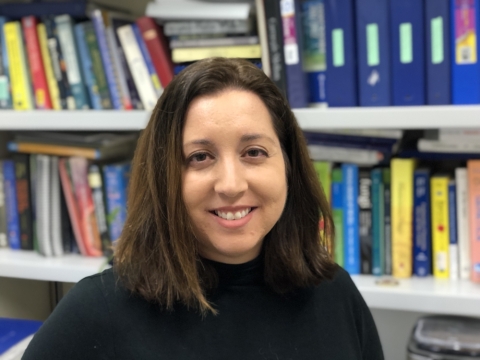
Date:
Location:
Speaker:
Abstract: Microbes are powerful reactors that perform highly specific chemical transformations, all of which can be programmed and altered by editing the genetic code. While chemical engineers have harnessed microorganisms as manufacturing platforms for several decades, the field has gravitated around the use of so-called “model” microbes like E. coli and yeast – these strains are easy to grow, domesticate, and proliferate under standard laboratory conditions, but they are devoid of the traits that we want to exploit for biotechnology. By contrast, the most marketable biological products (e.g. medicinal drugs, enzymes, nutrients) are sourced almost entirely from unusual, unwieldy microorganisms and their biological pathways. For biotechnology to advance, we must tap into the previously un-accessed genetic diversity in nature’s extreme and exceptional microbes. This talk will focus on a collective of research projects aimed at “domesticating” environmental microbes, with a focus on engineering anaerobes that work together in complex communities to decompose and recycle carbon biomass throughout the Earth – from our guts to landfills and compost piles. Despite their importance, little information exists to parse the role of each microbial member within their dynamic community. To address these knowledge gaps, we pioneered new techniques to isolate anaerobes from biomass-rich environments (e.g. guts and fecal materials of herbivores), characterize their shared metabolism, and engineer synthetic microbiomes to drive biomass to renewable chemicals. Many of these anaerobic microbes possess traits (e.g. pathways, proteins, structures) that stand to transform biotechnology and its myriad of applications to environment, health, and sustainability.
Bio: Michelle A. O’Malley is the Cliff R. Scholle Professor of Chemical Engineering and a Professor of
Bioengineering at the University of California, Santa Barbara. She earned a B.S. in Chemical Engineering
and Biomedical Engineering from Carnegie Mellon University in 2004, a PhD in Chemical Engineering
from the University of Delaware in 2009, and was a USDA-NIFA postdoctoral fellow at MIT. At UCSB, her
research group engineers anaerobes and consortia for sustainable chemical production, bioremediation,
and natural product discovery. O’Malley’s research has been featured on NPR’s Science Friday, the BBC
Newshour, the LA Times, and several other media outlets. She was named one of the 35 Top Innovators
Under 35 in the world by MIT Technology Review in 2015, one of the 10 “Scientists to Watch” by Science
News in 2019 and is the recipient of the Presidential Early Career Award for Scientists and Engineers
(PECASE). She is also the recipient of the Allan P. Colburn Award from the AIChE, the ASM Award for
Early Career Applied and Biotechnological Research, the AIChE Division 15 Early Career Award, a DOE
Early Career Award, an NSF CAREER award, the Camille Dreyfus Teacher-Scholar Award, the ACS
BIOT Division Young Investigator Award, an ACS PMSE Division Young Investigator Award, an ACS
WCC “Rising Star” Award, and a Hellman Faculty Fellowship. She was elected to the American Institute
of Medical and Biological Engineers in 2020, is the Past-Chair of the ACS Division of Biochemical
Technology (BIOT), and was recently appointed to the U.S. Defense Science Study Group (DSSG).
O’Malley currently serves as Director of the new NSF Biofoundry for Extreme and Exceptional Bacteria,
Archaea, and Fungi (ExFAB).



